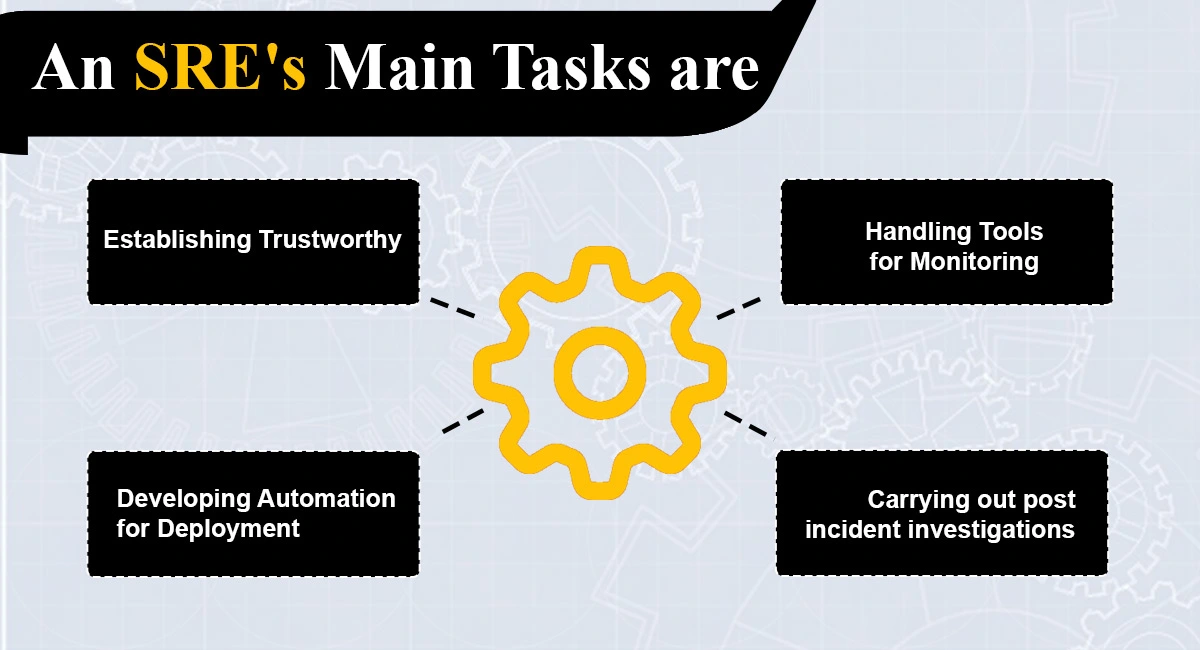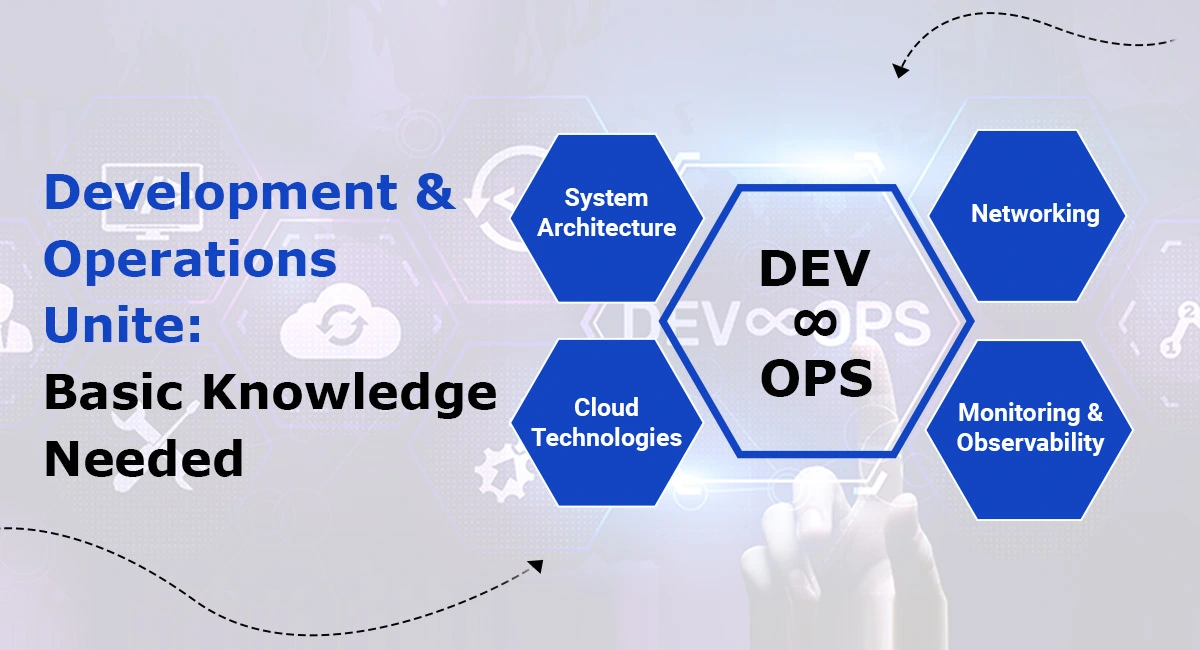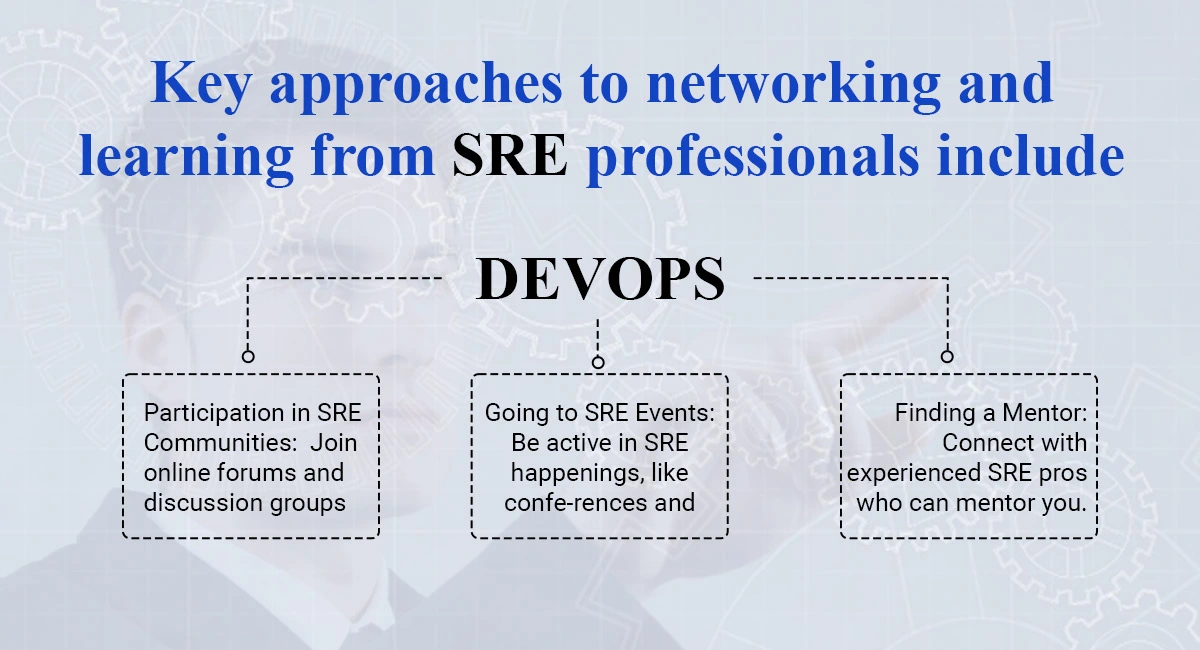Moving from being a developer to a Site Reliability Engineer (SRE) is thrilling! It's a chance to use your programming know-how to make big systems work better.
As developers start this change, they need to get the many sides of SRE. That includes not just tech smarts, but also people skills, and a big-picture view of how systems stay reliable and grow.
This guide gives full info on the key parts of becoming an SRE. That covers tech smarts, people skills, hands-on learning, and ways to keep learning and growing.
Site Reliability Engineers (SREs) have a key job. Their work is making sure big, spread-out systems work as they should.
They use know-how from computer coding to make behind-the-scenes stuff work better. They focus on making things run by themselves, grow bigger, and handle problems.
SREs workhand-in-hand with coding teams. Together, they make sure everyone follows the best steps so things run smoothly.
Because they know both coding and system operations, SREs have an important job. They maintain the steady working and speed of big, really important systems.

Considering a switch to an SRE role? Gauge your craft in core tech fields and spot where you can grow.
Developers eyeing SRE need a firm base in software creation. Being good at coding, managing versions, and designing software is key.
It's not just about building things. Knowing how to run systems, connect networks, and use the cloud is vital for a successful SRE stint.
Moving into SRE from another tech job? Detailed personal skills inventory can guide you. Recognize your growth areas and prepare for the ride!

Melding development with operations requires some basic knowledge.This includes:
Site Reliability Engineering, or SRE, includes vital elements like automation and Infrastructure as Code, known as IaC. These help us create and handle robust, adaptable systems.
What does embracing automation mean? It's about using handy tools and frameworks. They speed up repetitive jobs, cut down on human errors, and make sure your infrastructure's setup and control are constant and predictable.
Ever heard of Infrastructure as Code principles? These suggests handling the configuration of an infrastructure similar to software codes. This allows us to have versions, testing options, and duplicate infrastructure setups.
Moving into an SRE role, coders should zero in on these parts of automation and code-basedinfrastructure:
By fully taking in automation and code-based infrastructure, SREs can make strong, expandable systems. These are perfect for tackling the stiff conditions of current software applications.
Shifting from development to Site Reliability Engineering needs a DevOps attitude. It emphasizes teamwork, shared duties, and delivering value to end-users.
DevOps ideas promote a partnership between development and operations. It fosters a constant enhancement and automation culture. Also, feedback is a top priority to make ongoing improvements.
SREs, by adopting a DevOps attitude, can blend development and operations smoothly. This leads to the delivery of robust, high-performing systems that keep up with users' and businesses' changing needs.
Experience is crucial in transitioning to aSite Reliability Engineering(SRE) role.
Real-world application of SRE principles is priceless. It builds the necessary skills and confidence for succeeding in this vibrant field.
If you're a coder switching to SRE, it's smart to get involved with related projects. They prepare you for the job's challenges.
Also, joining in tech events, online meet-ups or big industry gatherings can look into real-life SRE problems. It also creates ties with other professionals.
By jumping into hands-on experiences, coders can fast-track their move to being practiced Site Reliability Engineers.
They can tackle complex issues of maintaining a modern system's reliability and capacity to grow.
Engaging with the Site Reliability Engineering (SRE) community and learning from experienced professionals is an invaluable strategy for gaining insights, mentorship, and practical knowledge relevant to the field.
Networking with SRE practitioners provides opportunities to exchange ideas, learn about best practices, and stay abreast of emerging trends and technologies in the realm of reliability engineering.

Key approaches to networking and learning from SRE professionalsinclude:
Networking and learning from SRE pros helps developers. They can gain insights, build new connections, and understand the various parts of Site Reliability Engineering better.
To excel as a Site Reliability Engineer (SRE), technical know-how is not enough. Good soft skills are important too.
These skills aid in good teamwork, making smart decisions, and help to adapt to fast-changing work setups.
Soft skills are critical for SREs to handle their diverse responsibilities well.
The focus on these softer, personal skills helps budding developers grow intoSRE positions. It rounds up their technical skills and readies them for the rewarding yet demanding world of Site Reliability Engineering.
Moving from development to Site Reliability Engineering comes with both challenges and opportunities.
Success means wearing different hats: technical know-how, communication skills, real-life experiences, and never-ending learning.
Work on your programming, automation, and infrastructure skills, master the DevOps mindset, get hands-on experience, connect and learn from SRE pros, and don't forget your interpersonal skills.
This can help developers find success in the fast-paced, vital field of SRE. Dedication, continuous learning, and an excellence mindset can help developers morph into proficient and influential Site Reliability Engineers.
Master the Skills and Strategies to Succeed in Site Reliability Engineering (SRE)
Confused about our certifications?
Let Our Advisor Guide You